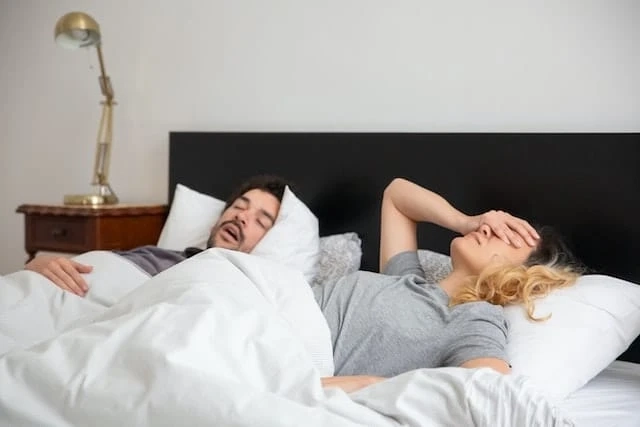While you sleep, the throat relaxes and allows air to pass faster, which can lead to snoring. This generates sharp, potentially annoying sounds because the relaxed muscles in your throat are vibrating.
If you or your partner snore, it could disrupt your slumber. Snoring is a symptom that should not be disregarded, even if it is not causing you any major discomfort. Indeed, snoring might indicate a significant health problem that you could treat with any of the 5 methods discussed below.
1. Oral Appliances
If you\'re having trouble breathing, a mouth appliance may assist. These custom-made dental mouthpieces move the jaw, soft palate, and tongue forward to improve airflow.
The dental professional will help you find the best posture and fit for your oral appliance. Together, you and your sleep doctor will monitor the effectiveness of the oral appliance.
Contact the dentist to check the fit and evaluate your dental health may be required at least every six months during the initial year and then annually after that.
Some people report adverse effects from using these devices, including excessive saliva production, dry mouth, facial discomfort, and jaw pain.
2. Upper Airway Surgery
Several operations are available to widen the air passages and stop them from narrowing as you sleep.
General anesthesia is used, for instance, in a technique known as uvulopalatopharyngoplasty. The surgeon will tighten and trim any loose tissue in your throat.
Your neck and chin will be given a rejuvenated appearance with this procedure. Similarly, maxillomandibular advances, in which the lower and upper jaws are moved forward to expand the airway, is a surgical technique. A radiofrequency pulse of low strength is used in a procedure called radiofrequency tissue elimination to reduce the size of the tongue, soft palate, or nose.
Hypoglossal neural stimulation is a relatively recent surgical method that involves applying a stimulus to the brain that regulates the forward motion of the tongue. Depending on the patient, the outcome of these operations varies widely and predicting their reaction might be complex.
3. Using a Nasal Strip or Mouth Guard
There are cases where simply using one of these gadgets can end nightly snoring. Depending on the root reason for your snoring, you may want to try one of several potential treatments. If your mouth opens up while you sleep, causing you to snore, a mouth guard that prevents this may be helpful.
Also, if your nasal passages tend to close during sleep and snoring is a problem, a nostril strip may help. Nevertheless, these gadgets may not effectively address all the potential causes of snoring.
The issue might be somewhere else in your airways, so an ENT expert is worth visiting if you\'ve exhausted the remedies sold by pharmacists.
4. Changing the Sleeping Position
When you lie on your side rather than your back, you reduce the pressure on your airway that causes snoring. It may take some time to adjust when this isn\'t your typical sleeping posture.
You could try placing a cushion against your back or snuggling up with one to prevent yourself from rolling over. You can avoid snoring by switching to a side sleeping position, which takes pressure from your jaw and airways, preventing them from collapsing.
Raising your head will be another alternative if you find it difficult to lie on your back. Pillowing up on more than the usual number of pillows will assist in keeping your airway open and clear while you sleep, reducing snoring.
Some people find that adding an extra pillow does the trick, but if you want to take precautions against snoring, you may also purchase a particular pillow in the shape of a wedge.
5. Weight Loss
The slightest extra weight can cause your neck to stiffen and hurt while you rest. The best way to avoid snoring is to maintain a healthy weight by exercising regularly and not smoking. Sometimes the simplest solution isn\'t to lose weight.
It may not be as difficult as you think if you shift your attention from calorie counting to the pleasure of living a healthier, more active lifestyle. The desire to end one\'s snoring habit is another powerful incentive to make these modifications.
Conclusion
If your nose is stuffy, you should get more sleep, try sleeping on your side, reduce alcohol consumption before bed, and have a warm shower. Taking these easy steps could indeed have a significant impact on the fight against snoring.
0



